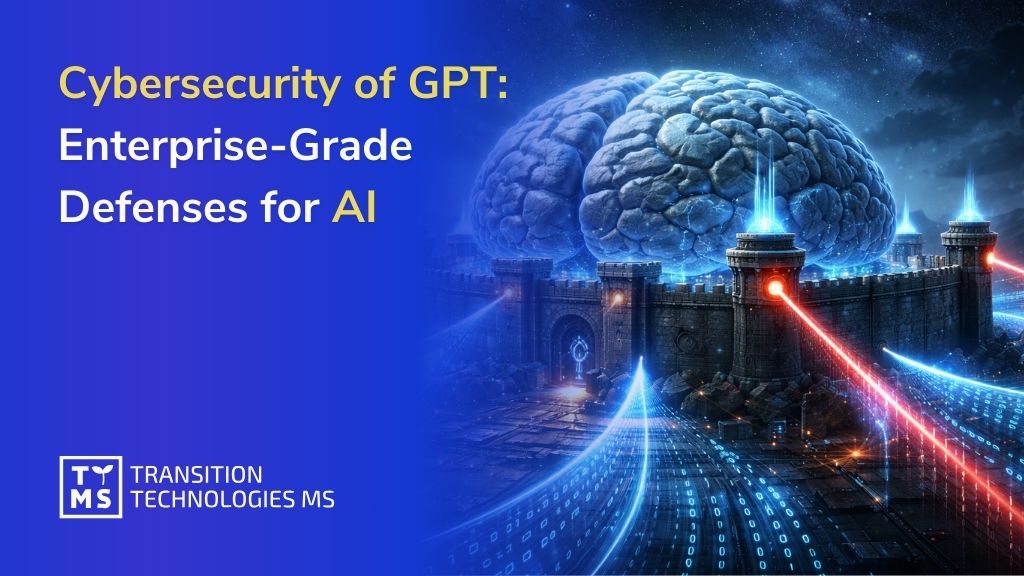Step into the remarkable intersection of technology and finance. We’re about to embark on an exciting exploration of how Artificial Intelligence (AI)
revolutionizes the financial technology or ‘Fintech’ sector, making life smoother for businesses and consumers alike. This article aims to shed light on this
intriguing blend of AI in Fintech, with illustrative examples and glimpses into what is yet to come. Let’s guess the
future of AI in fintech
1. What are AI and Fintech?
Before delving deeper into our main discussion, let’s first demystify these two fundamental terms: AI and Fintech. Artificial Intelligence, much-quoted but
often misunderstood, refers to sophisticated computer systems possessing abilities that typically require human intelligence. Examples span a broad spectrum –
understanding natural language, recognizing patterns, solving problems to learning from experience – encapsulating anything from basic chatbots to advanced
self-driving cars. Fintech, a portmanteau word connecting ‘financial’ and ‘technology,’ signifies innovation reshaping traditional financial services. It covers
everything from online banking apps enhancing our day-to-day transactions or digital currencies like Bitcoin transforming the very fabric of conventional
monetary exchanges.

When you bring Fintech AI, magic happens! The combined force significantly alters functions traditionally carried out by banks or other financial institutions
integrating tech-savviness with improved efficiency. Now that we have grounded ourselves in the basics let’s step deeper into understanding why integrating AI
in Fintech market holds such immense value.

2. The Value of Integrating AI in Fintech Market
The merger between Fintech and artificial intelligence has triggered a revolution set to redefine the traditional financial sector. In fact, substantial value
is being derived from integrating Fintech AI —profoundly shaping services such as user authentication, credit underwriting, risk management, and fraud
detection.
2.1 Data Automation and Credit Risk Assessment
AI has made it easier than ever to automate data processing. Traditional methods were time-consuming and prone to error. Now, thanks to artificial intelligence
in Fintech, lenders can assess credit risks with surgical precision by analyzing vast arrays of data points. For instance, automated systems dig deep into an
applicant’s financial history and spending patterns. A holistic risk profile is then constructed to ascertain the potential borrower’s creditworthiness:
continually leading to more informed lending decisions without human intervention.
2.2 Enhancing Efficiency and Cost Savings via Automation
Incorporating AI into Fintech infrastructure has markedly increased efficiency while driving down operational costs. Tasks like manual data entry or traditional
banking activities that require workforce hours can now be professionally executed by AI-automated solutions. Automation reduces operating costs, aids faster
response times improves accuracy levels in data handling processes—a win-win situation for businesses looking to stay competitive whilst improve customer
experience significantly. Furthermore, continued innovation promises even more sweeping changes: According to Fintechly.com
AI innovation alone could save the banking industry
about US$1 trillion by 2030.”
2.3 Enhanced Risk Management
Perhaps one of the most ground-breaking applications of AI in Fintech centers on improved risk management protocols. Businesses now employ machine learning
capabilities for predictive analysis, helping anticipate looming market threats before they materialize. By leveraging these insights gained from big data
analytics combined with real-time monitoring tools—finance professionals can act swiftly to mitigate risks, ultimately ensuring financial stability.
2.4 Bank Fraud Detection
AI’s role in identifying and preventing fraudulent transactions is instrumental. By analyzing transaction patterns and user behaviors, AI-enabled systems can
promptly detect anomalies indicative of potential fraud. This not only helps banks reduce loss from illegal activities but also ensures customer trust remains
robust: a key factor for sustainable success within any financial institution.
2.5 Boosting Safety
Customer information security rests at the heart of Fintech operations—and for good reason. Data breaches risk eroding valuable customer relationships built
over years of dedicated service. AI algorithms now assist in ramping up safety measures by detecting suspicious activity while enhancing the strength of
authentication methods.
2.6 Customer Service Automation
Companies have turned to
AI bots and virtual assistants for managing basic customer interactions,
rightly freeing up staff time to handle more complex queries. These automated systems offer accurate responses and aid customers with non-complex tasks around
the clock while maintaining pleasant end-user experiences.
2.7 User Behavior Analysis
AI technology excels at learning and predicting user behavior based on collected data. It authenticates users accurately, suggests relevant products or services
tailored to their preferences, and anticipates future needs—gaining traction with customers who seek personalized service paramount in today’s digitized world.
2.8 Forecasting Financial Trends
Analyzing market trends has never been more critical than it is today. Thankfully, AI-powered analytics applications specializing in forecasting inflows,
outflows, charge-offs, default predictions are designed specifically for making sense of market fluctuations with impressive accuracy levels. Financial
institutions that arm themselves with this level of insight into market mechanics will find decision-making streamlined adapting quickly to ever-changing
landscape dynamics. No longer does forecasting complex financial trends remain an insurmountable challenge—all thanks to artificial intelligence’s relentless
progression in fintech. Fintech artificial intelligence is reshaping financial services by enhancing data analysis, strengthening fraud detection, and
streamlining customer interactions. Now you know how AI is used in fintech to improve fraud detection, automate transactions, and enhance customer service.
3. How TTMS Can Help You With AI fo Fintech
The discussion so far materializes because pioneering companies like Transition Technologies MS (TTMS)
innovate relentlessly. With experience spanning years, TTMS innovates intelligent solutions bounding Fintech and artificial intelligence, empowering businesses
to optimize their operations, reduce costs, and provide superior customer service. Whether it’s automated trading systems that simulate human traders with less
risk or creating predictive models for financial planning—TTMS stands as a beacon of innovation in the intersection of AI and Fintech. By leveraging our
ground-breaking solutions, you are not just adapting to rapid technological advancements—you’re stepping ahead of them; essentially future-proofing your
operations against an ever-evolving environment. With AI at the core of our services—we view success stories from across the globe unfold every day. I warmly
invite you to be part of these stories as well. Let’s convert these words into action together!

4. The Future of AI in Fintech
Peering into the future can sometimes feel like trying to see through a dense fog. But when it comes to predicting the trajectory of AI in the Fintech market,
I’d venture a confident bet that advancements will continue at an incredible pace. Artificial Intelligence (AI) has already left its indelible imprint on the
fabric of financial services. From credit risk assessment and management to digital customer service provision such as chatbots, Fintech has embraced AI with
open arms. However, this is only the beginning. By leveraging deep learning and cognitive computing, future applications of AI in Fintech hold tremendous
promise.
4.1 Greater Personalization:
In a world where consumers are conditioned by companies like Amazon and Netflix to expect highly personalized product suggestions, financial services cannot
stay aloof for long. Individualized offerings based on spending patterns, goals, risk tolerance is anticipated, made possible by constantly evolving machine
learning algorithms.
4.2 Real-time Decision-making:
Imagine applying for a loan online or negotiating insurance premiums without having to endure days or weeks of waiting for approval. Instead, sophisticated AI
models could undertake comprehensive data analysis instantaneously – providing decisions within seconds.
4.3 Hyper-Accurate Predictive Analysis:
By using predictive analytical methods empowered by AI, it’s foreseeable we’ll be able to anticipate market trends accurately and adapt investment strategies
correspondingly – sometimes even ahead of time!
- AI-driven Robotic Process Automation (RPA):RPA works hand-in-hand with AI to automate routine tasks at scale with meticulous precision; think of bank reconciliation tasks or detecting fraudulent
activity.
- Quantum Computing:This revolutionary technology crunches large volumes of complex data almost instantly and is poised to supercharge machine learning processes –
offering unprecedented opportunities for finance organizations.
As exciting as these developments may sound—and believe me when I say they are—it’s crucial not underestimate their potential implications. This includes
addressing ethical concerns (such as data privacy and AI bias), regulatory frameworks, scaling up operations, workforce re-skilling, to name a few. But then
again, isn’t every leap into the future accompanied by its own set of challenges? Make no mistake about it: c The “future of AI in Fintech” promises technology
so integrally woven into our financial lives that today’s innovations will seem primitive. And I – like many other enthusiasts – am eagerly awaiting. Stay
tuned! As your friendly expert in this field, I’ll keep you updated on all exciting advancements and what they mean for “how is AI used in Fintech” as we
navigate these uncharted waters together. Now that’s a future worth waiting for, don’t you think?
5. Conclusion
As we look back at how artificial intelligence has woven itself into the tapestry of financial technology, it’s undeniable that AI in Fintech has initiated
transformative shifts. It has driven substantial changes all while improving operations and enhancing the customer experience. Indeed, the potential it holds is
immense. At first glance, one might assume this digital revolution to focus solely on automating repetitive tasks or improving algorithms for trading systems
and credit scoring — but it’s so much more than that. The integration of AI in Fintech extends even to boosting security measures, personalizing financial
advice & planning while constantly working towards a wholly automated banking system. Furthermore, the future of AI in Fintech seems exceptionally
promising. Imagine a world where customers have polished virtual assistants taking care of their routine banking tasks or making comprehensive investment
decisions on their behalf! Concepts such as these are no longer sci-fi fantasies but tangible realities within our grasp thanks to continued advancements in AI
technology. Moreover, predictive analytics is another powerful tool underlining the importance AI holds for tomorrow’s Fintech industry. It can provide
actionable insights from the sea of data generated daily allied with robust risk management strategies which will pave the way forward. It must be noted
however, without dismissing its merits, that incorporating artificial intelligence also brings along certain complexities such as concerns over privacy and
regulations which need diligent attention. In an era where innovations continue to emerge at breakneck speed within the money market environment, the role
played by ever-evolving applications of AI continues to surprise us by redefining conventional norms — turning them on their head! I am excited about this
journey we’re embarking upon together — exploring myriad possibilities strewn across paths less travelled within the fascinating realms of financial technology
interlaced with artificial intelligence!

6. How TTMS can help you with Artificial Intelligence in Fintech
As we traverse the Fintech landscape, it’s hard to ignore the substantial influence of AI. Being a global IT entity, Transition Technologies MS (TTMS) stands as
a crucial part of this transformation. Offering innovative solutions for businesses worldwide and providing high-quality outsourcing services, TTMS is making
waves in implementing AI in the fintech industry. One key area where TTMS outshines its competitors is its knack for applying generative AI in Fintech. The gen
AI developed by TTMS is capable of simulating human-like texts or even formulating predictions based
on prior data patterns. This capability offers immense benefits such as enhancing user experience, developing sophisticated strategic models, and formulating
probable future trends. Let me highlight some more nuanced elements of how TTMS helps with AI application:
- Tailored Solutions: No two businesses are alike, and neither are their requirements. Understanding this core principle, TTMS creates custom-made intelligence systems that
align well with your business structure.
- Efficiency Focus: Leveraging automation backed by advanced algorithms aids businesses to expedite their processes leading to extreme efficiency improvement.
- Process Optimization: Integrating gen AI within operational hierarchies enables continuous improvement mechanisms making workflow robust and mistake-proof.
- Risk-performance oriented models: Relying on big data analysis literally forces development of risk-adjusted performance metrics which further enhance decision quality at all managerial
levels.
Fostering a culture of innovation in each project they undertake, Transition Technologies MS has demonstrated
competence in crafting creative applications using state-of-the-art technologies like Virtual Reality (VR), Augmented Reality (AR), Internet of Things (IoT).
All these spheres require significant intervention from Machine Learning concepts thus giving an upper edge to TTMS due to its profound knowledge pool therein.
The journey towards incorporating artificial intelligence into financial technology might seem daunting initially. But with seasoned influencers like TTMS in
the field, businesses are achieving greater heights gradually. As often said, with great expertise comes great responsibility and TTMS is doing justice to this
statement by indefatigably working on pushing the boundaries of gen AI applications in Fintech
What is Artificial Intelligence (AI) in Fintech?
Artificial Intelligence in Fintech refers to the use of advanced computer systems and algorithms for automation, data analysis, and trend prediction in the financial sector. It encompasses everything from chatbots to credit risk assessment and fraud detection systems.
What are the benefits of integrating AI with Fintech?
Benefits of integrating AI in Fintech include:
- Increased efficiency through process automation.
- Improved accuracy and speed of financial analysis.
- Better risk management and fraud detection.
- Enhanced customer experiences through personalized services.
- Operational cost savings.
How does AI improve the credit risk assessment process?
AI allows for the analysis of large datasets of financial and credit history information of applicants, creating a comprehensive risk profile. Automated systems can assess creditworthiness with greater precision and speed than traditional methods, leading to more informed lending decisions.
What AI applications in Fintech have the greatest impact on enhancing security?
AI enhances security in Fintech by:
- Detecting suspicious activities and transactions in real-time.
- Improving authentication methods and protecting customer data.
- Analyzing user behavior patterns to quickly identify fraud.
How does AI affect the automation of customer service in Fintech?
Fintech companies use AI bots and virtual assistants to manage basic customer interactions. Automation allows for quick and accurate responses to customer inquiries, increasing satisfaction and enabling employees to focus on more complex issues.
What are the future trends in the use of AI in Fintech?
Future trends include:
- Greater personalization of financial services.
- Real-time decision-making based on data analysis.
- Hyper-accurate predictive analytics.
- Large-scale process automation using robotic process automation (RPA).
- Utilizing quantum computing to process large volumes of data.
How can Transition Technologies MS (TTMS) help companies integrate AI in Fintech?
TTMS offers innovative solutions that help companies integrate AI into their Fintech systems. The company creates tailored intelligent systems, optimizes business processes, and supports companies in implementing advanced technologies such as VR, AR, and IoT.
What are the main challenges associated with integrating AI in Fintech?
Challenges include:
- Protecting data privacy and complying with regulations.
- Managing potential AI biases.
- Retraining employees to adapt to new technologies.
- Scaling operations using advanced technologies.
Why is it worth investing in AI in the Fintech sector?
Investing in AI in the Fintech sector allows for:
- Increased market competitiveness.
- Improved customer service quality.
- Enhanced operational efficiency.
- Better risk management.
- More precise prediction and response to market trends.
How does AI help automate financial processes?
AI helps automate financial processes by handling tasks such as data entry, transaction processing, market trend analysis, and report generation. This allows employees to focus on more strategic tasks.
What are examples of AI applications in Fintech?
Examples of AI applications in Fintech include:
- Customer service chatbots.
- Fraud detection systems analyzing transaction patterns.
- Credit risk assessment algorithms.
- Automation of financial data processing.
- Personalized investment recommendations.
How does AI support the personalization of financial services?
AI supports personalization by analyzing customer data, such as spending patterns, preferences, and financial goals. Based on this data, AI systems can suggest products and services best suited to individual customer needs.
Can AI replace human financial advisors?
AI can support human financial advisors by automating routine tasks and providing accurate data analysis. However, human advisors are still needed for strategic decision-making and building client relationships.
What are the costs of implementing AI in Fintech?
The costs of implementing AI in Fintech can vary depending on the scale and complexity of the project. Costs include technology acquisition, system integration, employee training, and system maintenance.
How does AI impact risk management in Fintech?
AI impacts risk management by analyzing large datasets and predicting potential threats. AI systems can identify patterns indicating risk and suggest appropriate preventive actions.
What are the best practices for implementing AI in Fintech?
Best practices for implementing AI in Fintech include:
- Thorough analysis of business needs.
- Choosing the right technologies and partners.
- Training employees to use new tools.
- Monitoring and optimizing AI systems as they operate.
- Addressing ethical and regulatory issues related to AI use.
What are the potential risks associated with AI in Fintech?
Potential risks associated with AI in Fintech include:
- Data privacy breaches.
- Errors in algorithms.
- Potential biases and discrimination from improper AI training.
- Need to comply with legal regulations.
- Risk of job displacement due to automation.






